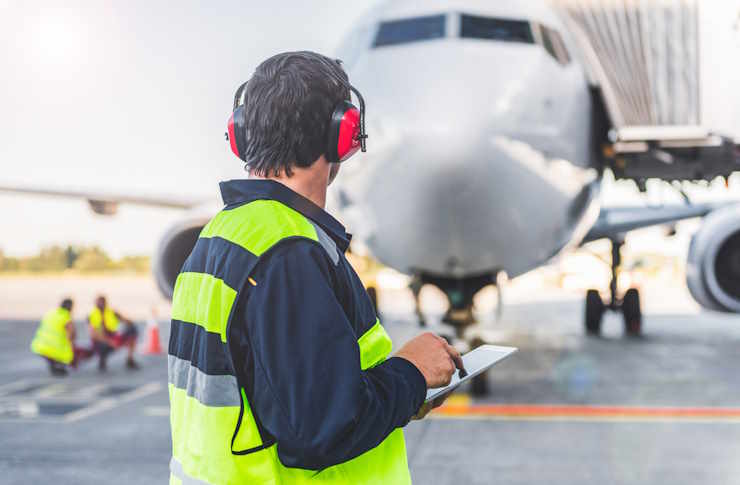Launching Your Aviation Career: Airport Job Opportunities
Discover the diverse world of airport careers, from ground operations to high-tech maintenance roles. This guide explores how the aviation industry offers stable employment, unique perks, and significant growth potential. Learn about the skills, qualifications, and paths to success in this dynamic field, where customer service meets cutting-edge technology.

The Backbone of Airport Operations: Ground Crew Roles
At the heart of every airport’s smooth functioning lies its ground crew. These essential workers manage a variety of tasks crucial to passenger satisfaction and operational efficiency. From assisting with check-in procedures to orchestrating the intricate dance of luggage transport, ground staff roles offer an entry point into the aviation industry with room for growth.
Key responsibilities often include: - Facilitating passenger check-in and boarding - Coordinating baggage logistics - Providing customer service and information - Supporting gate operations
While specific qualifications vary, most positions require a high school diploma and emphasize strong communication skills, physical fitness, and the ability to work in a fast-paced environment.
Guardians of the Sky: Aviation Security Positions
In today’s world, airport security personnel are more critical than ever. These roles combine vigilance with advanced technology to ensure the safety of passengers, crew, and aircraft. Security positions range from frontline screening officers to specialized analysts working behind the scenes.
Typical security roles include: - Passenger and baggage screening officers - Perimeter security patrols - Cybersecurity specialists - Threat assessment analysts
Qualifications often involve rigorous background checks, security clearances, and ongoing training in the latest detection and prevention techniques. Many positions require certification from transportation security authorities.
High-Flying Tech: Maintenance and Engineering Opportunities
For those with a technical bent, airport maintenance and engineering roles offer a challenging and rewarding career path. These positions are crucial for keeping both aircraft and ground facilities in top condition, ensuring safety and efficiency.
Key technical roles include: - Aircraft maintenance technicians - Avionics specialists - Ground support equipment mechanics - Facility maintenance engineers
Many of these positions require specialized certifications, such as the Airframe and Powerplant (A&P) license for aircraft mechanics. Continuous learning is a hallmark of these careers, as technology in the aviation industry evolves rapidly.
Charting Your Course: Career Advancement in Aviation
One of the most attractive aspects of airport careers is the potential for advancement. The aviation industry is known for promoting from within, offering clear paths for career progression.
Potential career trajectories: - Ground staff to operations manager - Security officer to chief of security - Maintenance technician to engineering director
Many airports and airlines offer training programs and tuition assistance, supporting employees in gaining the skills and certifications needed to climb the career ladder.
The Sky’s the Limit: Benefits of Airport Careers
Working in aviation comes with unique perks that set it apart from other industries: - Travel benefits, including discounted or free flights - Exposure to diverse cultures and languages - Cutting-edge technology and equipment - Robust healthcare and retirement packages - Dynamic, ever-changing work environment
Navigating Your Aviation Career Take-Off
While specific job availability and compensation can vary widely based on location, airport size, and economic conditions, the aviation industry continues to be a source of stable employment with strong growth potential. As air travel evolves, so do the opportunities within airports, from customer-facing roles to behind-the-scenes technical positions.
For those looking to embark on an aviation career, consider these steps: 1. Research specific roles that align with your skills and interests 2. Identify required certifications or training programs 3. Gain relevant experience through internships or entry-level positions 4. Network within the industry at job fairs and aviation events 5. Stay informed about industry trends and technological advancements
Whether you’re drawn to the excitement of ground operations, the precision of aircraft maintenance, or the critical nature of security work, airport careers offer a unique blend of challenges and rewards. With the right preparation and mindset, you can find your place in this dynamic and essential industry.
Remember, while this guide provides an overview of potential career paths, it’s important to research current job markets and specific employer requirements in your area. The aviation industry is subject to rapid changes, and opportunities may vary significantly over time and by region.






